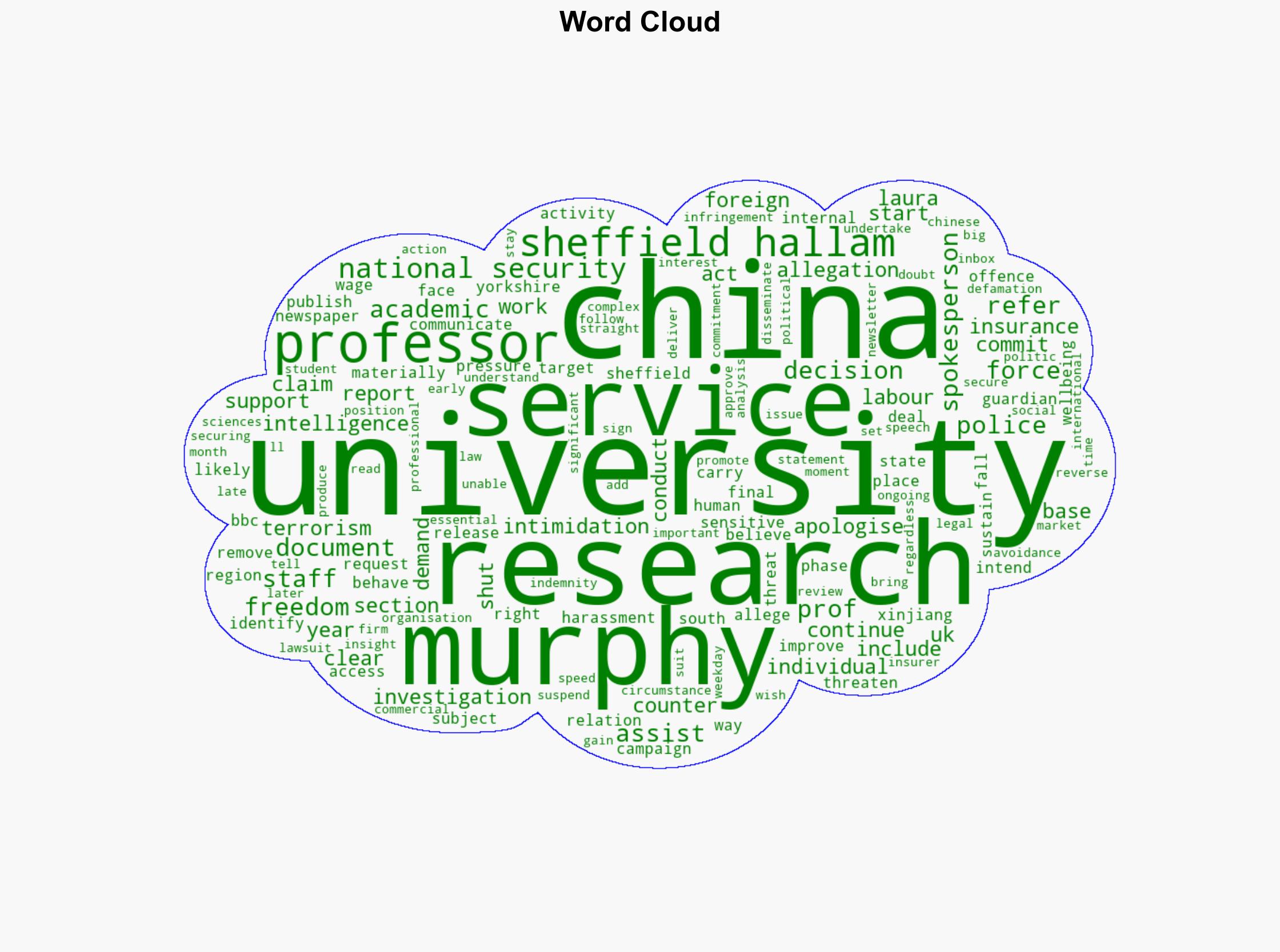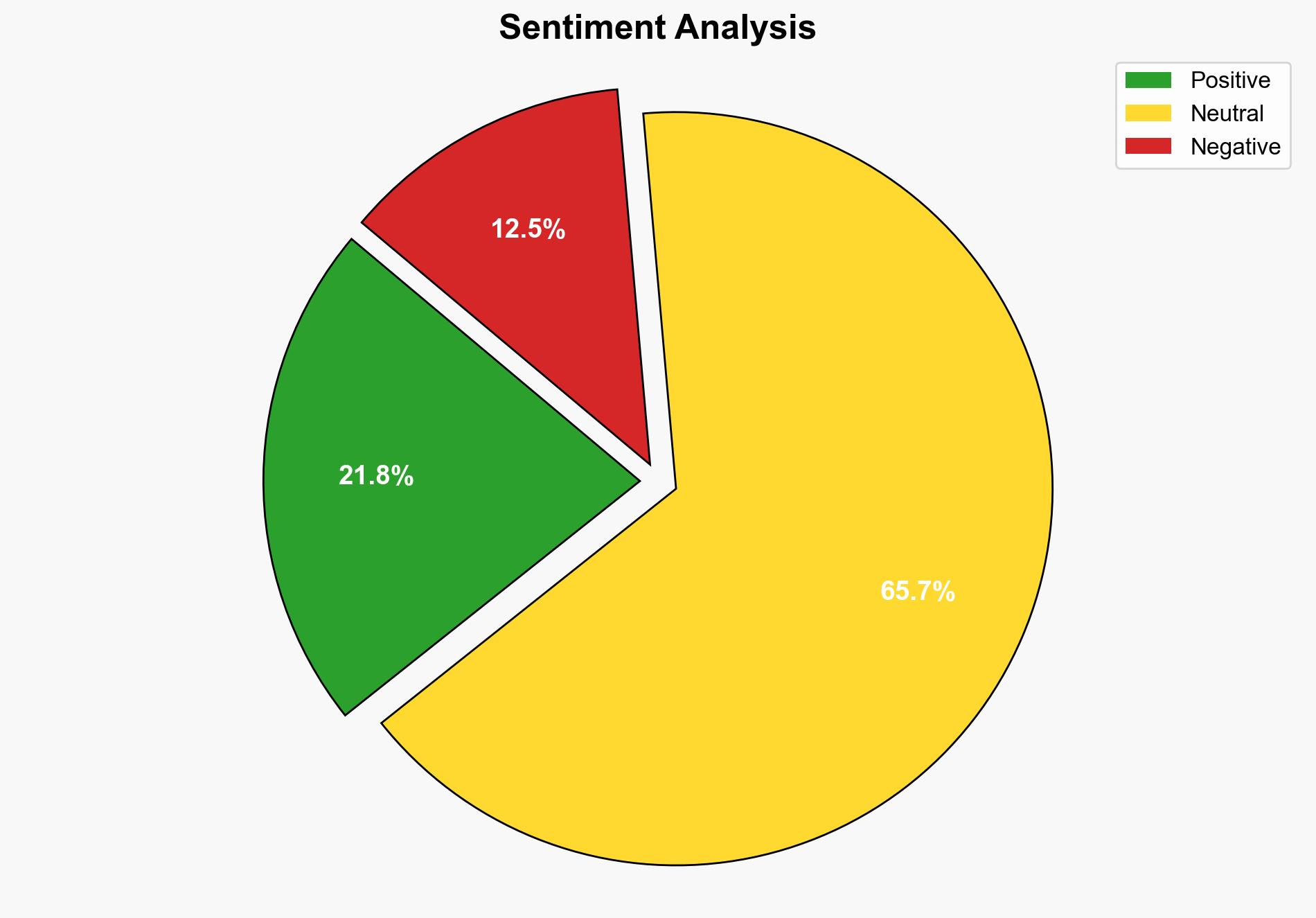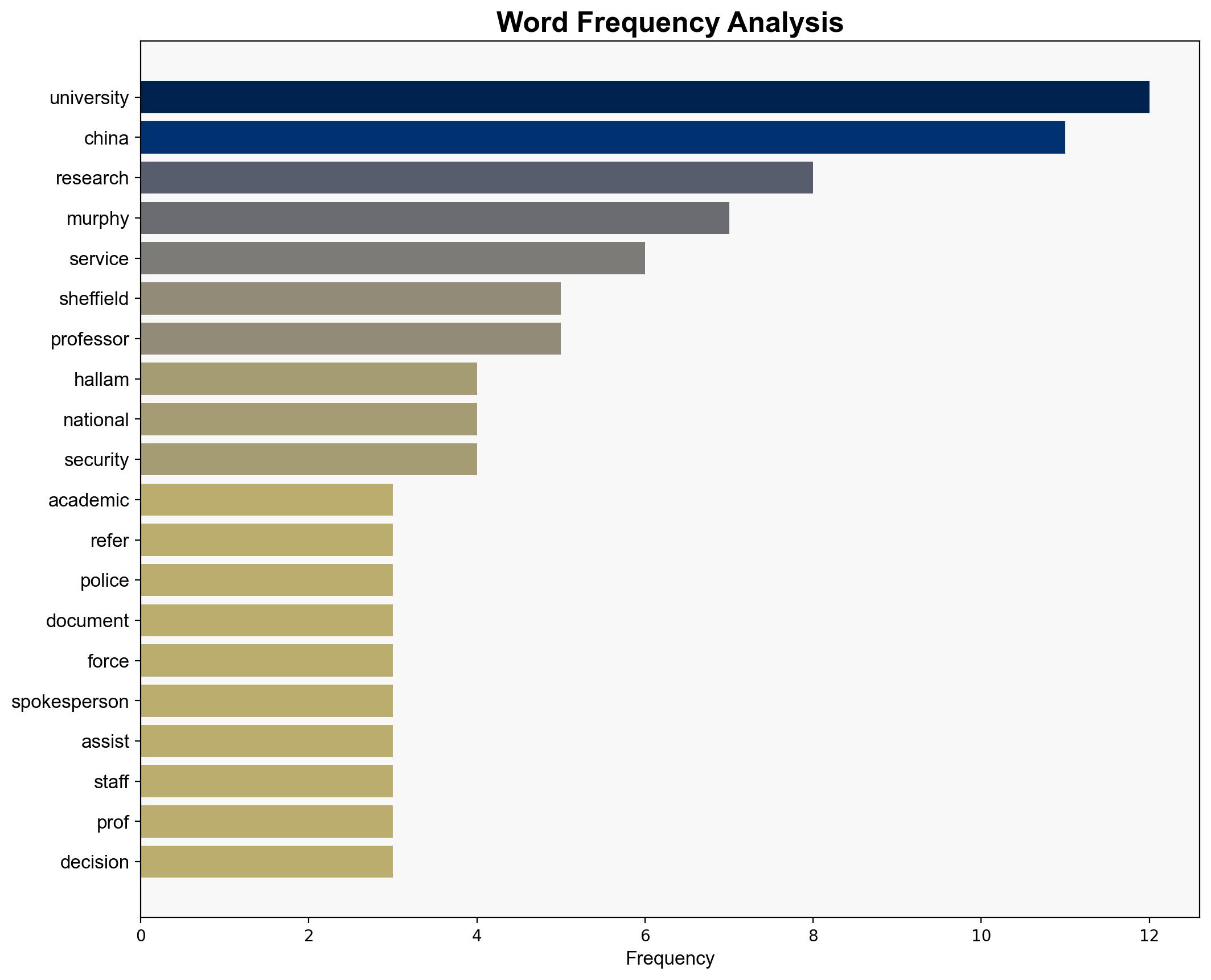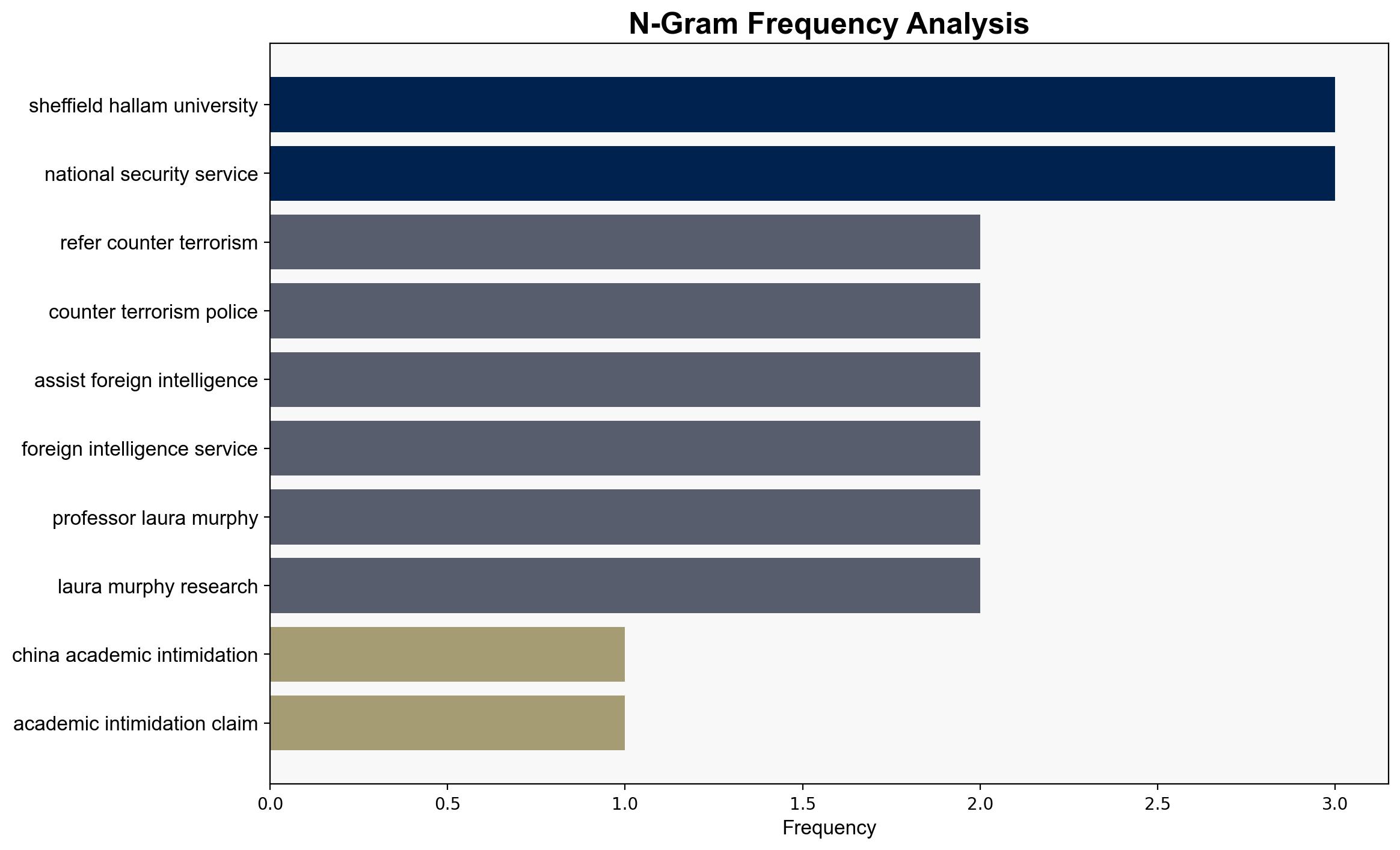China academic intimidation claim referred to counter-terrorism police – BBC News
Published on: 2025-11-03
Intelligence Report: China Academic Intimidation Claim Referred to Counter-Terrorism Police – BBC News
1. BLUF (Bottom Line Up Front)
The investigation into claims of Chinese academic intimidation at Sheffield Hallam University has been referred to counter-terrorism police, highlighting potential national security concerns. The most supported hypothesis is that China is exerting pressure to suppress research on sensitive topics like forced labor in Xinjiang. Confidence level: Moderate. Recommended action: Enhance protective measures for academic freedom and monitor foreign influence in educational institutions.
2. Competing Hypotheses
1. **Hypothesis A**: China is actively intimidating academic institutions to suppress research critical of its human rights practices, particularly concerning forced labor in Xinjiang.
2. **Hypothesis B**: The intimidation claims are exaggerated or misinterpreted, with the university’s actions primarily driven by commercial interests and risk management, rather than direct Chinese influence.
Using Analysis of Competing Hypotheses (ACH), Hypothesis A is better supported due to documented instances of pressure and threats from Chinese entities, as well as the involvement of national security services. Hypothesis B is weakened by the university’s reversal and apology, indicating recognition of external pressure.
3. Key Assumptions and Red Flags
– **Assumptions**: Hypothesis A assumes a coordinated effort by China to influence foreign academic research. Hypothesis B assumes internal university decisions are primarily financially motivated.
– **Red Flags**: Lack of transparency in the university’s initial decision-making process and potential bias in interpreting threats. The involvement of a Chinese firm in a defamation suit raises questions about indirect influence.
– **Blind Spots**: Limited information on the nature and extent of threats from Chinese entities and the university’s internal deliberations.
4. Implications and Strategic Risks
– **Geopolitical**: Increased scrutiny on China’s influence in Western academic institutions could strain diplomatic relations.
– **Economic**: Potential financial repercussions for universities reliant on international students from China.
– **Psychological**: Intimidation tactics may deter academic research on sensitive topics, impacting freedom of speech.
– **Escalation Scenarios**: If unchecked, such intimidation could lead to broader suppression of academic freedoms globally.
5. Recommendations and Outlook
- Enhance security protocols and support systems for researchers working on sensitive topics.
- Conduct a thorough investigation into foreign influence in academic institutions.
- Scenario Projections:
- **Best Case**: Strengthened academic freedom with minimal impact on international relations.
- **Worst Case**: Escalation of diplomatic tensions and increased suppression of academic research.
- **Most Likely**: Continued scrutiny and gradual policy adjustments to safeguard academic integrity.
6. Key Individuals and Entities
– Laura Murphy: Professor at Sheffield Hallam University, central to the research and subsequent intimidation claims.
– Sheffield Hallam University: The institution facing pressure and legal challenges related to the research.
– Chinese National Security Service: Allegedly involved in threatening actions against the university.
7. Thematic Tags
national security threats, cybersecurity, counter-terrorism, regional focus




